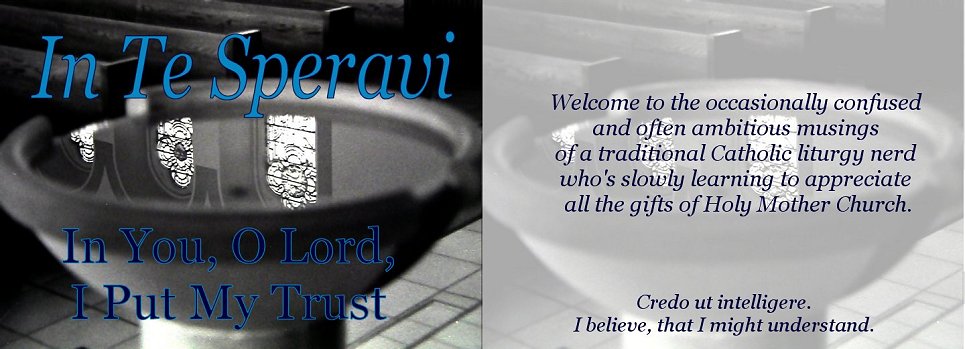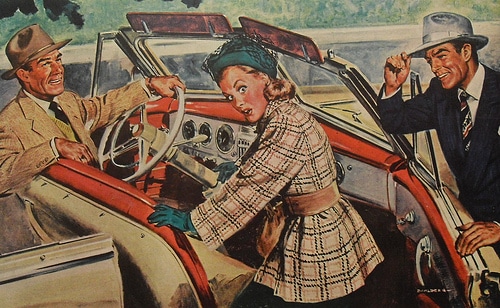Anyway! My first goal is to avoid starting paragraphs with meaningless transition words like "so" and "anyway." Starting now.
My sister's high school put on The Crucible last night, and I went to see it - she was ushering and needed a ride, I retained a fairly strong affinity for the play from high school discussions, and her school's drama department never fails to put on superbly acted/directed shows, and my plans had been cancelled by the rain anyway. Well, once I got past the distractions of being seated immediately in front of the lighting booth (read: it wasn't dark by me, even when the theater was dark) and being surrounded by texting high schoolers (even though they threatened to throw out audience members who were texting! What gall!), I found myself engaged in the play intellectually as much as emotionally.
This is a new thing for me, watching a story and considering the philosophical ramifications, but I like it. It certainly made watching the play alone amidst a sea of people a much more pleasant experience.
What first struck me was the caricature of the Christian faith that seemed to be speaking to me in most of the characters. Then I thought about the historical time frame and realized that Puritanism is really very unlike Catholicism (and I considered the pleasing liberality in Catholicism - but more on that another day, perhaps). Instead I tried to consider what my response would have been were I any of the characters depicted.
Say what you will, Arthur Miller has a knack for making nearly all of his characters destestable. At the very least, each person's flaws were clearly visible. I tried, as in reality, to see Christ in each character, to be forgiving to their personality flaws and instead see things from their perspective, to give each character the benefit of the doubt that they really tried to do the right thing... but it was so hard! The "Christians" were so prideful, and once the established order of things was turned completely upside-down, it became painfully clear who was lying and why. Still, it's so much easier as a detached audience member to see that the people in power were obviously being duped than it is to be such a person, admit your own wrong, and turn the system on its head for the greater good of everyone. (Mary Warren tried this, and couldn't hold to the truth.)
Which brings me to my next topic: When government is combined with religion, bad things happen. Here I saw surprising parallels with Zamyatin's We, Orwell's 1984, Moore's V for Vendetta, etc. Perhaps I'm just more sensitive to this because I'm a person who values my faith and religious practices very highly, and who believes that the separation of church and state is being carried out here in a way contrary to its original intention, but it seems clear that whenever the two are combined, both are weakened, and fallen human nature is allowed free reign over both. I think this might be leading me into a brief diatribe about how some form of atheism has become the new culturally dominant minority religion, and anti-Catholicism the trendy new anti-Semitism (not that it's new, but that it's fashionable, and socially acceptable although technically politically incorrect)... and that's not really where I want to go right now. More on that when I finish Michael Novak's No One Sees God: The Dark Night of Atheists and Believers.
Sorry to leave this conclusionless, but my musings were interrupted at length by both my sister and my mother, and my brain is in a thoroughly different place now than when I began, and I'm exhausted.
In other news: I think it's easier to write nonfiction. No wonder there's so much more of it out on the market.












